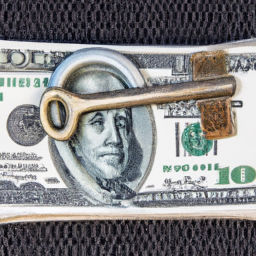If you’ve ever considered owning a timeshare, it’s important to understand the costs associated with this investment. From the initial purchase price to ongoing maintenance fees, there are various expenses to keep in mind. In this article, we will explore the different costs involved in owning a timeshare to help you make an informed decision. Whether you’re a current timeshare owner or someone considering this type of vacation ownership, understanding the financial commitments can be key to maximizing your enjoyment and minimizing any potential surprises.
Thank you for reading this post, additional resources can be found here, Everything About Timeshares
Annual Maintenance Fees
What are annual maintenance fees?
As a timeshare owner, you are responsible for paying annual maintenance fees. These fees are used to cover the cost of maintaining and operating the resort or property where your timeshare is located. They are typically based on the size of your unit and the amenities offered at the resort.
How much can you expect to pay in annual maintenance fees?
The amount you pay in annual maintenance fees can vary depending on several factors. These factors include the location of your timeshare, the size of your unit, and the amenities offered at the resort. On average, annual maintenance fees for a timeshare can range from a few hundred dollars to a few thousand dollars per year.
What do annual maintenance fees cover?
Annual maintenance fees are used to cover a variety of expenses associated with owning a timeshare. These expenses may include property taxes, utilities, insurance, landscaping, repairs, and general upkeep of the resort. By pooling these fees together, the resort can ensure that the property is well-maintained and that owners can enjoy their timeshare without worrying about these day-to-day costs.
Special Assessments
What are special assessments?
In addition to annual maintenance fees, timeshare owners may be subject to special assessments. These assessments are typically one-time fees that are imposed when there is a need for major repairs or renovations at the resort. Special assessments are usually required when the cost of these projects exceeds the amount of money available in the maintenance fee fund.
How are special assessments calculated?
The calculation of special assessments can vary. In some cases, the cost is divided equally among all timeshare owners. In other cases, the assessment may be based on the size of each owner’s unit or the number of weeks they own. The amount of a special assessment can range from a few hundred dollars to several thousand dollars.
When can you expect to pay special assessments?
Special assessments are typically unexpected expenses that arise when major repairs or renovations are needed at the resort. They can occur at any time and are often unanticipated by timeshare owners. It is important to budget for the possibility of special assessments and be prepared to pay them if they are required.
Exchange Fees
What are exchange fees?
Many timeshare owners choose to participate in exchange programs to use their timeshare at different locations around the world. To take advantage of these programs, owners must pay exchange fees. These fees cover the administrative costs associated with arranging the exchange and ensuring that owners have access to a wide variety of resorts to choose from.
How much are exchange fees?
The cost of exchange fees can vary depending on the exchange company and the specific program you choose to participate in. Generally, exchange fees range from $100 to $300 per exchange. Some exchange companies may also charge an annual membership fee in addition to exchange fees.
What do exchange fees cover?
Exchange fees cover the administrative costs of arranging the exchange. This includes the coordination of reservations, ensuring availability at the desired resort, and processing the necessary paperwork. By paying these fees, timeshare owners can enjoy the flexibility of using their timeshare at different locations without the hassle of organizing the exchange themselves.
Property Taxes
Do timeshare owners have to pay property taxes?
Yes, timeshare owners are typically responsible for paying property taxes on their timeshare property. The amount of property taxes you owe will vary depending on the location of your timeshare and the assessed value of the property. It is important to be aware of your property tax obligations and plan for these expenses accordingly.
How often are property taxes due?
Property taxes are typically due annually, although the specific due date may vary depending on the jurisdiction where your timeshare is located. Failure to pay property taxes on time can result in penalties and interest charges, so it is crucial to stay on top of these obligations.
Can property tax amounts increase over time?
Yes, property tax amounts can increase over time. The assessed value of your timeshare property and the tax rates set by local authorities can change, leading to fluctuations in your property tax bill. It is important to factor in potential increases when budgeting for property taxes.
Utilities
Are utilities included in annual maintenance fees?
In many cases, utilities such as electricity, water, and gas are included in the annual maintenance fees paid by timeshare owners. However, it is necessary to review the terms of your timeshare agreement to confirm whether utilities are covered or if there are additional charges for their usage. Knowing this information can help you plan your budget more accurately.
Can utility costs vary depending on usage?
Yes, utility costs can vary depending on your usage. Just like in a traditional home, the amount of electricity, water, and gas you consume can impact your utility bills. It is important to be mindful of your usage and adopt energy-saving habits to minimize costs.
What happens if utility costs exceed the budget?
If the costs of utilities exceed the budget set by the annual maintenance fees, timeshare owners may be responsible for covering the additional expenses. Some resorts have a reserve fund to address unforeseen utility cost increases, while others may require owners to share the burden of these additional costs.
Insurance
Do timeshare owners need insurance?
While not mandatory in all cases, it is highly recommended for timeshare owners to have insurance coverage. Timeshare insurance can provide protection in case of damages to your unit or personal belongings, liability claims, and other unforeseen circumstances. It is crucial to carefully review your timeshare insurance policy to understand the coverage and ensure it meets your needs.
What factors can impact timeshare insurance premiums?
Several factors can impact the cost of timeshare insurance premiums. These factors may include the location of your timeshare, the size and value of your unit, the amenities offered by the resort, and your personal insurance history. It is advisable to obtain quotes from multiple insurance providers to find the most competitive rates.
Can timeshare insurance be included in annual maintenance fees?
In some cases, timeshare owners may have the option to include insurance coverage in their annual maintenance fees. This arrangement can simplify the payment process, as the insurance premium is bundled with other necessary expenses. However, it is important to confirm with the resort or management company whether this option is available and what the coverage includes.
Membership Dues
What are membership dues?
Membership dues are fees paid by timeshare owners for access to specific programs or services provided by the resort or timeshare company. These dues can vary widely and may be mandatory or optional, depending on the terms of your timeshare agreement.
What services can membership dues cover?
Membership dues can cover a range of services and benefits. These may include access to resort amenities such as pools, fitness centers, and recreational facilities, discounts on dining or spa services, priority booking for reservations, and exclusive member events. Understanding what services are included in your membership dues can help you maximize the value of your timeshare ownership.
Can membership dues increase over time?
Yes, membership dues can increase over time. Just like annual maintenance fees, membership dues may be subject to adjustments to account for inflation, rising operational costs, or the addition of new services or amenities. It is important to review your timeshare agreement to understand the potential for increases in membership dues.
Closing Costs
What are closing costs?
Closing costs are the fees associated with the purchase or transfer of a timeshare. These costs are typically paid by the buyer and cover various expenses, including title search fees, document preparation fees, attorney fees, and administrative costs incurred during the closing process. It is advisable to review all closing costs in advance to ensure you have sufficient funds to complete the transaction.
How much are closing costs?
Closing costs can vary depending on several factors, such as the location of the timeshare, the purchase price, and any additional services or protections you may choose to include. On average, closing costs for a timeshare can range from a few hundred dollars to a few thousand dollars. It is essential to obtain a detailed breakdown of all potential closing costs before finalizing the purchase.
Can closing costs be negotiated?
In some cases, it may be possible to negotiate certain closing costs. This is particularly true when purchasing a timeshare on the resale market. By working with a reputable resale company or broker, you may have an opportunity to lower some of the closing costs associated with the transaction. It is recommended to explore all options and negotiate whenever possible to achieve the most favorable terms.
Interest on Financing
Can you finance a timeshare purchase?
Yes, financing options are often available for timeshare purchases. Just like with traditional real estate, buyers can choose to finance their timeshare through a loan. However, it is important to carefully consider the terms and interest rates associated with the financing option before committing to a loan.
How is interest on financing calculated?
Interest on financing a timeshare purchase is typically calculated based on the loan amount, the interest rate, and the loan term. The interest can be fixed or variable, and the length of the loan can vary depending on the financing options offered by the lender. Be sure to review the terms and conditions of the loan agreement to understand the total interest cost over the life of the loan.
Can you deduct interest on timeshare financing for tax purposes?
In some cases, the interest paid on timeshare financing may be tax-deductible. However, this is subject to specific tax regulations that vary by jurisdiction and personal circumstances. It is advisable to consult with a tax professional to determine if you qualify for any deductions related to your timeshare financing.
Subscription and Subscription Transfer Fees
What are subscription fees?
Subscription fees are charges associated with timeshare exchange and vacation clubs. These fees may cover access to reservation systems, online booking platforms, customer service support, and exclusive member benefits. If you are a part of a vacation club or exchange program, it is important to understand the subscription fees involved.
How much are subscription fees?
The cost of subscription fees can vary depending on the specific program or club you are a member of. Some programs may charge annual or monthly subscription fees, while others may have a one-time enrollment fee. It is advisable to review the terms and conditions of your membership to understand the cost structure and any potential changes in subscription fees over time.
Can you transfer a timeshare subscription?
Yes, it is often possible to transfer a timeshare subscription to another individual. However, this process may involve additional fees known as subscription transfer fees. These fees cover the administrative costs associated with transferring the membership and updating the ownership records. It is important to inquire about any transfer fees before initiating the transfer process.
Owning a timeshare can be a fantastic way to enjoy vacation experiences year after year. However, it is essential to be aware of the costs associated with timeshare ownership. From annual maintenance fees and special assessments to exchange fees and property taxes, understanding and budgeting for these costs can help ensure a stress-free ownership experience. By doing your research and carefully reviewing your timeshare agreement, you can make informed decisions and enjoy the benefits of owning a timeshare for years to come.








